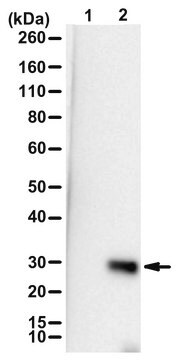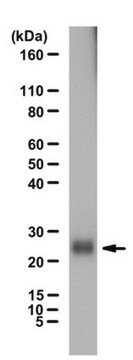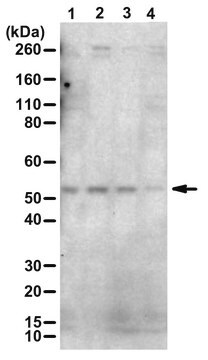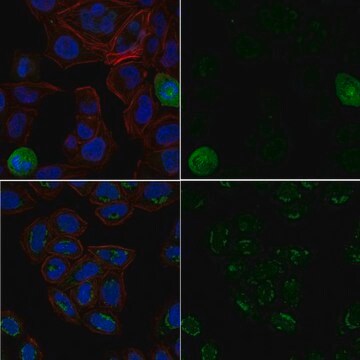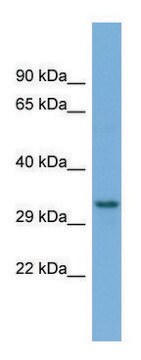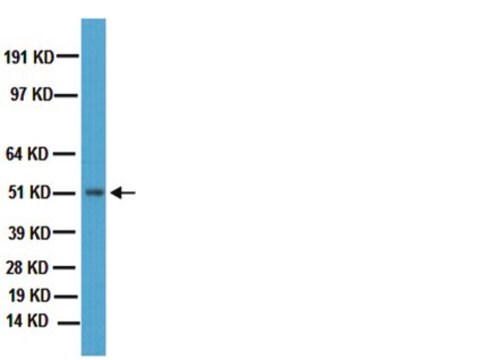ABS1513-I
Anti-phospho-Ubiquitin (Ser65)
from rabbit, purified by affinity chromatography
Synonym(s):
Ubiqutin, Ser65 phosphorylated, Ub, Ser65 phosphorylated
About This Item
Recommended Products
biological source
rabbit
Quality Level
antibody form
affinity isolated antibody
antibody product type
primary antibodies
clone
polyclonal
purified by
affinity chromatography
species reactivity
human
species reactivity (predicted by homology)
mouse (based on 100% sequence homology), guinea pig (based on 100% sequence homology), rat (based on 100% sequence homology), horse (based on 100% sequence homology), sheep (based on 100% sequence homology), bovine (based on 100% sequence homology), hamster (based on 100% sequence homology), nonhuman primates (based on 100% sequence homology)
technique(s)
immunocytochemistry: suitable
western blot: suitable
UniProt accession no.
shipped in
ambient
target post-translational modification
phosphorylation (pSer65)
Gene Information
human ... UBB(7314)
General description
Specificity
Immunogen
Application
Western Blotting Analysis: A 1:5,000 dilution from a representative lot detected GST-PINK1-catalyzed Ser65 phosphorylation of recombinant Ubiquitin.
Immunocytochemistry Analysis: A 1:200 dilution from a representative lot detected phospho-Ubiquitin (Ser65) in PINK1 expressing HeLa cells without and with CCCP treatment. (Courtesy of Dr. Noriyuki Matsuda).
Quality
Western Blotting Analysis: A 1:1,000 dilution of this antibody detected cellular ubiquitin Ser65 phosphorylation induction in 10 µg of lysate from PINK1-expressing HeLa cells upon CCCP (Cat. No. 215911) treatment.
Target description
Linkage
Not finding the right product?
Try our Product Selector Tool.
recommended
Storage Class Code
12 - Non Combustible Liquids
WGK
WGK 1
Certificates of Analysis (COA)
Search for Certificates of Analysis (COA) by entering the products Lot/Batch Number. Lot and Batch Numbers can be found on a product’s label following the words ‘Lot’ or ‘Batch’.
Already Own This Product?
Find documentation for the products that you have recently purchased in the Document Library.
Our team of scientists has experience in all areas of research including Life Science, Material Science, Chemical Synthesis, Chromatography, Analytical and many others.
Contact Technical Service